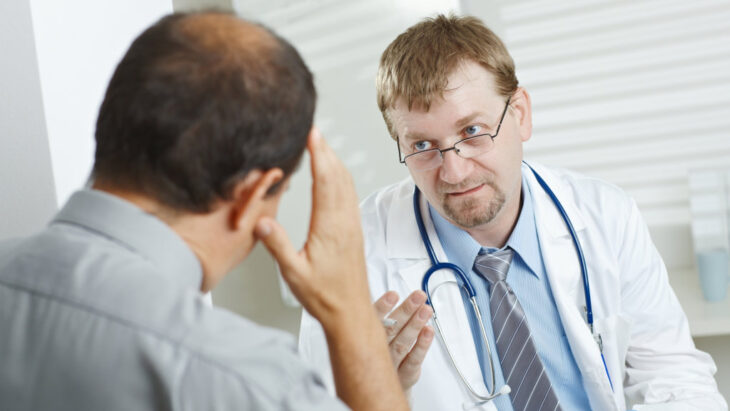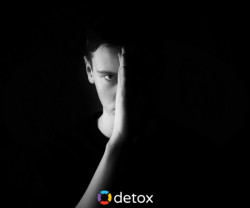What Is Dual Diagnosis?

Dual diagnosis goes by many names: comorbidity, co-occurring disorders, comorbid disorders. Whatever you choose to call it, this condition describes an individual who is diagnosed with two simultaneous disorders. Often, these two issues are intertwined.
Dual diagnosis is extremely common among individuals who suffer from substance use disorder, as mental disorders often go hand-in-hand with SUD. According to the National Alliance on Mental Illness, approximately 21.5 million American adults suffer from dual diagnosis.
If you or someone you love is suffering from dual diagnosis, it is important to understand all the underlying causes of this condition and how they may interconnect. Different treatment options may be necessary for a safe, effective recovery from dual diagnosis.
You can call 800-996-6135 now to learn more about dual diagnosis or to be connected with detox programs that can effectively treat this issue. Our treatment advisors are available any time, night or day, to take your call.
Dual Diagnosis Defined

Dual diagnosis or comorbidity is defined by the diagnosis of two separate diseases, illnesses, or disorders in the same person at the same time. The term itself implies that they coexist and also that they are interlinked. This means that one may have helped to bring about the other. In the case of substance abuse, dual diagnosis commonly refers to the frequent diagnoses of addiction and mental illness in the same individual.
When dual diagnosis is identified by a medical practitioner, it is important to realize that specialized treatment will be required, especially during detox. The withdrawal symptoms experienced during medically assisted detox can be uncomfortable, though the client will be treated to minimize the intensity of these symptoms. Painful or frightening symptoms can cause psychological issues to worsen, so specific treatment options will often be necessary.
Drug Addiction and Other Mental Illnesses
Addiction itself is a mental illness. When a person becomes addicted to drugs or alcohol, it changes the way their brain works, which can cause them to behave and think differently. As such, it is not uncommon for individuals who are addicted to substances to also suffer from mental disorders.
People who suffer from a substance use disorder are twice as likely as the general population to also suffer from a mental disorder. The reverse of this statement is also true: people who suffer from mental disorders are twice as likely to become addicted to drugs as people who don’t.
Mental illnesses and substance use disorders often co-exist because one can easily lead to the other.
When a person is addicted to drugs and alcohol, other mental disorders can develop as a result.
- Withdrawal from stimulants can cause temporary psychosis. While it does subside, some people experience renewed symptoms months or even years later.
- Marijuana abuse has been known to increase the risk of psychosis in vulnerable users.
- Using drugs can create high highs but also low lows. Some individuals develop depressive or anxious symptoms as a result of their substance abuse, which can sometimes result in a full-blown mental disorder.
Contact Detox.com now to find effective dual diagnosis treatment centers near you!
When an individual suffers from a mental disorder, they experience a higher risk of addiction.
- Many individuals with mental disorders try to self-medicate with the use of drugs and alcohol, hoping to alleviate their symptoms at least for a while. Unfortunately, this often backfires and causes an addiction.
- Mental illness, trauma, and other psychological disorders are serious risk factors for addiction. The more risk factors a person has, the more likely any substance abuse on their part could become addictive.
If you or someone you love is suffering from addiction, tests must be done to confirm or deny the presence of comorbidity.
How Do I Know I Have a Dual Diagnosis?
You must consult a physician in order to find out for certain if you have a dual diagnosis. However, if you struggle with SUD and have for a long time, it is a likely possibility. This is why doctors always check for symptoms of mental disorders during addiction treatment. For example, all individuals going through opioid detox should be screened for depression, as these two disorders often occur simultaneously.
You may be likely to have two comorbid disorders if you are:
- Experiencing severe psychological and/or behavioral symptoms
- No longer in control of your actions, thoughts, emotions, etc.
- Experiencing dangerous thoughts and actions (such as suicidal thoughts)
- Use multiple drugs simultaneously
- Have suffered from SUD for a long time
Still, it is absolutely paramount that you are examined by a doctor before you can determine if you have dual psychological syndromes like addiction and a substance use disorder.
How Are These Disorders Treated?
Dual diagnosis is treated differently from addiction on its own in that it requires more intensive care. This care starts with detox treatment, which usually needs to occur in an inpatient center for individuals with dual diagnosis.
If your condition is severe and requires intensive support, inpatient or residential treatment facilities provide round-the-clock care.
- These facilities usually provide more treatment options, including additional behavioral therapies. Holistic treatments are also more likely to be found in inpatient centers than in outpatient centers.
- Inpatient facilities provide 24-hour care in a controlled environment. People who are going through treatment for addiction and other mental disorders often thrive in a restricted environment. Here, they will not be tempted to return to substance abuse. In addition, they will be in a place that provides them with order and consistency, which can be effective for recovery.
- Inpatient centers ensure that clients will never be alone, which is paramount for individuals with intense mental disorders. While clients are still given time to reflect by themselves, help is never far away when it is necessary.
Medications are effective for treating dual diagnosis clients.
- Certain medications can be effective for treating addictions or minimizing withdrawal symptoms. Some clients may be weaned off their drug of abuse with the help of medications while other individuals may be stabilized with them.
- Other pharmacological options may be used to treat mental disorders and their symptoms. For example, some clients may need antidepressants if they are struggling with major depression or a similar disorder.
- Doctors in a detox or rehab center will ensure that any medications prescribed can be taken safely with one another if multiple drugs are prescribed to the same individual at the same time.
Behavioral therapies are also extremely beneficial for dual diagnosis clients.
- Behavioral therapies can take one’s substance use and mental illness into account at the same time. A therapist can also ensure that the client can work on both issues simultaneously.
- Certain behavioral therapies can help clients learn how their substance abuse helped lead to their mental illness or vice versa. Cognitive-behavioral therapy (CBT) uses the learning process to allow clients to recognize the reasons behind their substance abuse and to work through any trauma or psychological issues associated with it.
Holistic treatments can sometimes be effective for dual diagnosis clients as well.
These programs can include:
- Yoga
- Meditation
- Animal therapy
- Art therapy
- Dance therapy
- Massage therapy
- Tai Chi
- Acupuncture
Some individuals may choose holistic treatment instead of evidence-based care, although the most effective programs normally utilize both options.
Treatment for both disorders can start in detox. Clients will be medically assisted in the process of withdrawal. Remember, though, detox itself is NOT a treatment for addiction or for mental illness. Instead, it is a treatment for drug dependence and is usually the first step in one’s recovery from a substance use disorder.
How Can I Find Help for Dual Diagnosis?
You are not alone. There are many different treatment paths for your recovery, and a large number of them will begin with detox. Most individuals in this situation will require intensive inpatient detox because it is the safest option for early recovery from dual diagnosis. Afterward, you will need to transition into some sort of rehab or another addiction treatment program to complete your recovery.
We are always available to help addicted individuals seek the care they need to recover. If you or someone you love has a dual diagnosis, it is doubly important that you receive the right care. Call 800-996-6135 now to discuss your situation with one of our treatment advisors.

